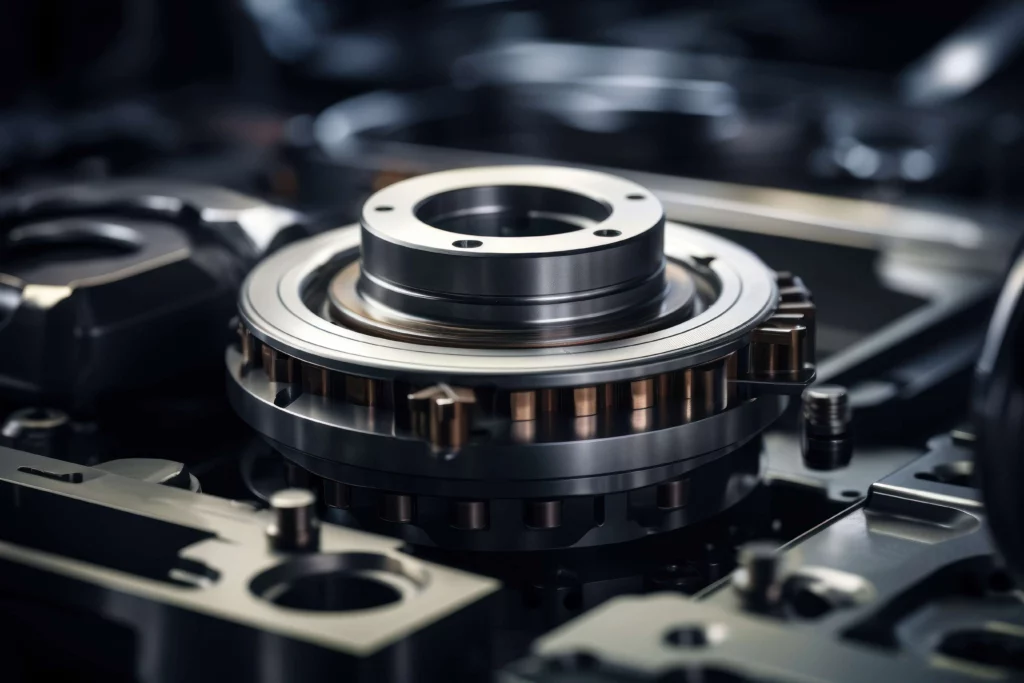In the world of quality control, precision is the North Star. It guides industries across the board, from manufacturing to software development, keeping products and services on the right track.
This article explores the pivotal role of precision in quality, elucidating methods for achieving it and its significance in customer satisfaction.
Discover through case studies how precision can turn the tide in the battle for excellence and control in your industry.
Understanding the Concept of Precision in Quality
The concept of precision in quality refers to the degree of exactness or accuracy that a product, service, or process consistently achieves, shedding light on its reliability and repeatability. Precision Metrics are, quite simply, the tools we use to measure this exactness. They ensure that the product or service you’re getting is just as good as the one before it, and the one before that. The real beauty of it all is the consistency.
Quality Standards, on the other hand, are the benchmarks set to ensure that a product, service, or process meets the level of quality that has been defined. They are like the guardrails that keep everything on track. Consider them your safety net. They make sure that precision is not just a one-time thing, but a habit that becomes ingrained in the process.
So, let’s put it in perspective. Imagine a world without precision in quality. It would be like shooting darts in the dark, hoping to hit the bullseye. But with precision metrics and quality standards in place, it’s like having a guided missile system that zeros in on the target every single time.
Now that we have a better understanding of the concept of precision in quality, let’s delve deeper into its role in different industries. It’s going to be a fascinating journey, I promise.

The Role of Precision in Different Industries
How, then, does precision in quality manifest itself and contribute to the success of different industries? Well, the answer lies in the term itself. Precision is about getting things right, down to the smallest detail. It’s about making sure that every part of a product or service is as good as it possibly can be. It’s about not settling for ‘good enough’.
To appreciate the role of precision in different industries, let’s look at three examples:
- In the automotive industry, precision is crucial for producing vehicles that are safe, reliable, and efficient. From the design phase to the assembly line, every aspect of the production process requires meticulous attention to detail. This is where industrial precision techniques come into play, ensuring that each car part is made to exact specifications for optimal performance.
- In the healthcare sector, precision is vital for patient care. Doctors, nurses, and other healthcare professionals need to make accurate diagnoses, prescribe the right treatments, and carry out procedures with the utmost care. And precision’s economic impact is felt here too, with inaccurate diagnoses or treatments potentially leading to costly medical lawsuits.
- In the tech industry, precision is key for developing software and hardware that meet users’ needs. Whether it’s designing a user-friendly app or manufacturing a high-performance laptop, precision helps tech companies deliver products that are reliable and effective.
In a nutshell, precision in quality is a fundamental ingredient for success in any industry. It drives economic growth, promotes customer satisfaction, and helps businesses maintain their competitive edge. So yes, precision matters – a lot.

Methods for Achieving Precision in Quality
Implementing rigorous quality control measures and adopting advanced technological tools are pivotal steps towards achieving precision in quality. But let me be clear – this isn’t a walk in the park, folks. It requires a strategic approach, a keen eye for detail, and the right precision tools.
Quality metrics, those quantifiable values that show us how well we’re doing, are our best friends in this process. They provide us with a clear picture of where we truly stand. Are we hitting our targets? If not, where are we falling short? These metrics give us the answers. They’re our roadmap to precision, guiding us on where to steer our efforts to ensure the highest level of quality.
Now, let’s chat about precision tools. These aren’t your run-of-the-mill gadgets. No, sir. They are advanced pieces of technology designed specifically to make precision in quality a reality. They allow us to measure, monitor, and control quality with a level of accuracy that would be impossible with the naked eye or traditional methods.
But remember, folks, these tools aren’t a magic bullet. They’re just one piece of the puzzle. You need to pair them with a culture that values quality and precision, a team that’s trained to use these tools effectively, and a management that’s committed to making quality a priority.
Now that we’ve got a handle on the methods for achieving precision in quality, let’s shift gears and delve into why this precision is so vital for customer satisfaction. Trust me, folks, this is a topic you don’t want to miss.
Importance of Precision in Quality for Customer Satisfaction
Understanding the undeniable significance of precision in quality for customer satisfaction requires a deep dive into the expectations and needs of the modern consumer. These savvy individuals expect not just quality, but precision in quality. They want exactness, accuracy, and consistency in the products or services they purchase. It’s not about just meeting, but exceeding their expectations.
In the realm of customer satisfaction, precision in quality resonates on multiple levels:
- Precise Marketing: It’s not about blasting generic marketing messages anymore. Consumers expect personalized, precise marketing that speaks to their unique needs and preferences. This increases their trust and engagement with the brand.
- Quality Assurance: Precision in quality assurance means that products or services are consistently high quality, reliable, and fit for purpose. This builds customer confidence and loyalty.
- Value for Money: When a product or service is precise in quality, it provides excellent value for money. This is a key driver of customer satisfaction and repeat business.
So you see, precision in quality is not just a nice-to-have. It’s a must-have in today’s hyper-competitive marketplace. It’s about understanding your customers, being precise in meeting their needs, and assuring them of the quality of your offering. It’s about giving them control and making them feel valued.
Because at the end of the day, satisfied customers are the lifeblood of any successful business. And precision in quality is a surefire way to keep them satisfied.

Case Studies Highlighting the Impact of Precision in Quality
To illustrate the vital role of precision in quality, let’s examine some real-life case studies, and see how they have tangibly impacted business outcomes and customer satisfaction.
First, take a look at a leading automobile manufacturing company. This company experienced significant precision failures impact due to a lack of standard quality checks. The result? A massive recall of their latest model, costing them millions of dollars and harming their reputation.
In contrast, another auto manufacturer, who implemented precision enhancement strategies, ensured all parts met exact specifications. Their attention to precision led to better product performance and a surge in sales.
In the pharmaceutical industry, precision in quality can literally be a matter of life and death. One company learned this the hard way when a lack of precision in their drug production process resulted in substandard medication reaching the market. This led to severe health repercussions for their consumers and massive legal liabilities for the company.
On the flip side, a competitor that invested in precision equipment and strict quality control measures produced a highly effective drug, earning them accolades and increased market share.
These case studies highlight the critical role precision plays in quality. Precision failures can lead to disastrous outcomes, while precision enhancement strategies can foster business growth and customer satisfaction. It’s clear that companies who desire control over their future should prioritize precision in their operations.
Conclusion
In conclusion, the pivotal role of precision in quality cannot be overstated. Precision acts as a critical benchmark in various industries, bolstering customer satisfaction and overall performance.
The strategic implementation of precision in quality can lead to significant improvements in the reliability and consistency of products and services. This, in turn, reinforces the reputation and credibility of businesses across the globe, emphasizing the essentiality of precision in defining quality.



